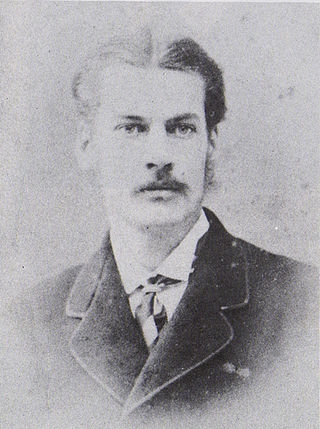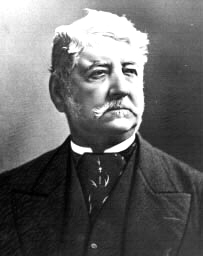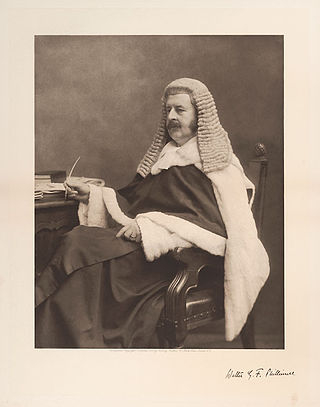Service in China
In 1863 he was appointed clerk in the Chinese Maritime Customs, serving under Sir Robert Hart in Tientsin and Shanghai. He was sent in 1864 as a student interpreter to Beijing, then appointed interpreter in Guangzhou. Bowra organised the 1866 tour for the Chinese Secretary of Customs, Pin Chun. In England Bowra married Thirza Woodward. On his return to China he was sent to Ningbo, where his children Ethel and Cecil were born. He was promoted to Deputy Commissioner in 1872.He organized the Chinese contribution for the Vienna Exhibition of 1873, for which the Austrian government awarded him the Order of the Iron Crown. Bowra died in England at the age of thirty-two in 1874, [4] apparently after over-exerting himself at a garden party. He was buried in the catacombs of West Norwood Cemetery.
His son, Cecil Arthur Verner Bowra (1869–1947) also served in the Chinese Maritime Service. [5] His grandson, Maurice Bowra, born in Jiujiang, became a prominent classical scholar. [6]

Sir Cecil Maurice Bowra, was an English classical scholar, literary critic and academic, known for his wit. He was Warden of Wadham College, Oxford, from 1938 to 1970, and served as Vice-Chancellor of the University of Oxford from 1951 to 1954.

His Majesty's Paymaster General or HM Paymaster General is a ministerial position in the Cabinet Office of the United Kingdom. The incumbent Paymaster General is John Glen.

Hercules George Robert Robinson, 1st Baron Rosmead,, was a British colonial administrator who became the 5th Governor of Hong Kong, then 13th Governor of Ceylon, and subsequently, the 14th Governor of New South Wales, the first Governor of Fiji, and the 8th Governor of New Zealand. Later in his career he held various positions in Southern Africa, including two terms as Governor of the Cape Colony. From June 1859 until August 1896, he was known as Sir Hercules Robinson.

Sir Ernest Mason Satow,, was a British diplomat, scholar and Japanologist. He is better known in Japan than in Britain or the other countries in which he served, where he was known as Satō Ainosuke. He was a key figure in late 19th-century Anglo-Japanese relations.

The Chinese Maritime Customs Service was a Chinese governmental tax collection agency and information service from its founding in 1854 until it split in 1949 into services operating in the Republic of China on Taiwan, and in the People's Republic of China. From its foundation in 1854 until the collapse of the Qing dynasty in 1911, the agency was known as the Imperial Maritime Customs Service.

Sir Arthur Edward Kennedy was a British colonial administrator who served as governor of a number of British colonies, namely Sierra Leone, Western Australia, Vancouver Island, Hong Kong and Queensland.

Edward Bootle-Wilbraham, 1st Earl of Lathom, known as The Lord Skelmersdale between 1853 and 1880, was a British Conservative politician. He was a member of every Conservative administration between 1866 and 1898, and notably served three times as Lord Chamberlain of the Household under Lord Salisbury. Having succeeded his grandfather as Baron Skelmersdale in 1853, he was created Earl of Lathom in 1880.

The Fourth Sea Lord and Chief of Naval Supplies originally known as the Fourth Naval Lord was formerly one of the Naval Lords and members of the Board of Admiralty which controlled the Royal Navy of the United Kingdom the post is currently known as Chief of Materiel (Fleet). As of 2017, it is also known as Chief of Fleet Support, Chief of Materiel (Ships) then as of 2020, Director General Ships.

Walter George Frank Phillimore, 1st Baron Phillimore,, known as Sir Walter Phillimore, 2nd Baronet, from 1885 to 1918, was a British lawyer and judge.

Admiral of the Fleet Lord Walter Talbot Kerr, was a Royal Navy officer. After taking part in the Crimean War and then the Indian Mutiny, he supervised the handover of Ulcinj to Montenegro to allow Montenegro an outlet to the sea in accordance with the terms of the Treaty of Berlin. He became Flag Captain to the Commander-in-Chief, Channel Squadron and then Commander-in-Chief, Mediterranean Fleet. He went on to be Second-in-Command of the Mediterranean Fleet, then Commander-in-Chief of the Channel Squadron and finally became First Naval Lord. In that capacity he presided over a period of continued re-armament in the face of German naval expansion but was unceasingly harassed by Admiral Sir John Fisher.

Sir Robert Hart, 1st Baronet, was a British diplomat and official in the Qing Chinese government, serving as the second Inspector-General of China's Imperial Maritime Custom Service (IMCS) from 1863 to 1911. Beginning as a student interpreter in the consular service, he arrived in China at the age of 19 and resided there for 54 years, except for two short leaves in 1866 and 1874.
The High Sheriff of Monaghan was the British monarch's representative in County Monaghan, a territory known as his bailiwick. Selected from three nominated people, he held his office for the duration of a year. He had judicial, ceremonial and administrative functions and executed High Court Writs.

Arthur Edward Guest, was a British Conservative politician.
The High Sheriff of Kerry was the British Crown's judicial representative in County Kerry, Ireland from the 16th century until 1922, when the office was abolished in the new Free State and replaced by the office of Kerry County Sheriff. The sheriff had judicial, electoral, ceremonial and administrative functions and executed High Court Writs. In 1908, an Order in Council made the Lord-Lieutenant the Sovereign's prime representative in a county and reduced the High Sheriff's precedence. However, the sheriff retained his responsibilities for the preservation of law and order in the county. The usual procedure for appointing the sheriff from 1660 onwards was that three persons were nominated at the beginning of each year from the county and the Lord Lieutenant then appointed his choice as High Sheriff for the remainder of the year. Often the other nominees were appointed as under-sheriffs. Sometimes a sheriff did not fulfil his entire term through death or other event and another sheriff was then appointed for the remainder of the year. The dates given hereunder are the dates of appointment. All addresses are in County Kerry unless stated otherwise.
Mackenzie Edward Charles Walcott (1821–1880) was an English clergyman, known as an ecclesiologist and antiquarian.

Sir Edward Loughlin O'Malley was a British lawyer and judge. He served as attorney general and chief justice of a number of British colonies in the late 19th and early 20th centuries. His last position before retirement was as chief justice of the British Supreme consular court in the Ottoman Empire.

Sir Francis Arthur Aglen was a servant of the Chinese Imperial Customs, later to be the Chinese Maritime Customs, rising through the service to become Inspector-General of the Chinese Maritime Customs Service from 1911 to 1927 after the death of Sir Robert Hart.

The Civil Lord of the Admiralty formally known as the Office of the Civil Lord of Admiralty also referred to as the Department of the Civil Lord of the Admiralty was a member of the Board of Admiralty who was responsible for managing the Royal Navy's supporting civilian staff, the works and buildings departments and naval lands from 1830 to 1964.















